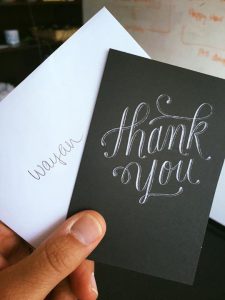By Dr. Claire Klieger
Many students are getting ready to start summer internships next month so I thought it would be a good time to revisit a topic I blogged about a few years ago. Regardless of whether you will be in your dream internship or just trying out something new, it is important to create a positive impression. Future employers will often ask for references (even if your previous experience is completely unrelated) so you will want to be able to provide a list of contacts that you know will speak highly of your job performance. Here are six tips sure make you stand out on the job:
1) Volunteer for any work that needs doing, no matter how menial or uninteresting. Let’s face it, every internship may include some less than glamorous tasks, but the attitude you take towards completing these matters. Whether it’s making copies, picking up mail or (as in the case of one intern at the Eagles), counting the number of toilets in your facility, your willingness to say, “Sure, I can do that!” will be noticed and appreciated.
2) Make an effort to fit in. Fitting into any work environment depends upon understanding the culture. Pay attention to those around you. What is the dress code? Do people go out for lunch or eat at their desks? Do most people stay and work after hours or is everyone out the door at five? Also, take part in social activities provided by your organization to show that you are a team player and enthusiastic about your work. These kinds of events are also great networking opportunities.
3) Go the extra mile. It is important to make the very best of any internship situation. If you do not have enough work of your own to do, look around to figure out who could use help; then offer it. You never know who is going to be grateful for your offer to crunch some numbers, design a flyer, summarize a set of articles, or run an experiment, etc. If you identify a need, you could gently offer an idea (and volunteer to see it through) that might be useful.
4) Put in the time (and be on time). Understand what your expected hours are. Whatever they may be, if you want to stand out, be prepared to arrive a little early and possibly stay late. Whatever you do, don’t create the impression that you’re checking your watch so that you can bolt out the door at 5 (or whenever the business day ends where you work).
5) Be professional. This is important for demeanor as well as dress. Also, be cognizant of your online communications. Keep your work emails professional—write in full sentences and avoid using acronyms or emoticons. Employers often complain that interns, used to texting, do not understand well how to draft professional emails.
6) Treat everyone pleasantly, regardless of status. Focus less on becoming chummy with your fellow interns and more on being pleasant with everyone. This could be as simple as greeting people at the beginning and end of each day and remembering to smile. Also, be careful not to look like as though you are only interested in making a good impression with senior level colleagues in positions of power.
If you follow these simply steps, you greatly increase the chances that those working around you will not only see you as a great intern, but may even start asking themselves, “what would we do without you?!”




